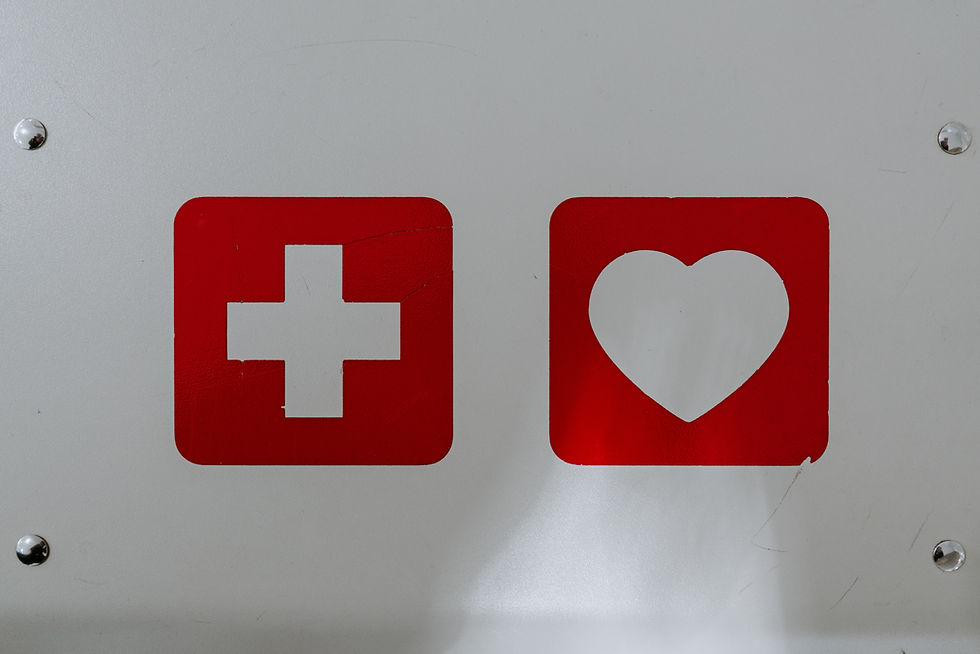Reach out with HEART on National Physician Suicide Awareness Day
- OhioPHP
- Sep 17, 2023
- 3 min read
Updated: Mar 10, 2025
Suicide rates have increased, again, based on the CDC’s most recent release of provisional suicide data for 2022. There were 49,449 deaths by suicide in 2022, an increase of 2.6% (1). The data on physician suicide is harder to pin down, but according to the Physician’s Foundation 2022 Survey of America’s Physicians, 53% of physicians personally know a physician who has ever considered, attempted, or died by suicide and of those, 20% are from within the past year (2). September 17, 2023, is the fifth annual National Physician Suicide Awareness Day, which was started to increase awareness of suicide in a population that has significant work-related stress and burnout rates but low rates of intervention and seeking help. There are specific ways to help physicians and other healthcare worker colleagues, friends, and family who may be at risk for self-harm.
If you are concerned that someone in your life may be feeling suicidal, you can use the acronym HEART to identify the “Vital Signs” (3):
Health - Increased intake of mood-altering substances, such as alcohol or other drugs, expressing thoughts of suicide/wanting to die
Emotions - Extreme mood swings, expressing hopelessness
Attitude - Cynicism or pessimism about work and/or home life
Relationships - Withdrawing from others, social isolation, expressing fears of being a burden
Temperament - Engaging in risky behaviors, expressing discomfort or pain

If you have identified someone that you are concerned about, you can intervene with these five tips according to 988-The Suicide and Crisis Lifeline (4).
Ask
Ask them directly and non-judgmentally if they have thoughts of suicide. Provide support and listen to them talk about why they are feeling that way and also what they are living for. Asking won’t increase the risk of suicide. If they say yes, they were already thinking about it before you brought it up.
Be There
Whether by phone or in person, being present for someone who is suicidal can be lifesaving. It increases their sense of connection and belonging. You can also brainstorm with them to figure out who may be able to be present physically if you are not available.
Keep Them Safe
Ask some more questions about their plan. Do they have a plan? Do they have a method? How soon are they planning to try something? Have they tried in the past? Do they have access to their method? If you can help arrange from the method to be removed (for example, access to firearms in the home), that can decrease the chances of a suicide. If you don’t know what to do, you can call 988 yourself and get advice.
Help Them Connect
The person needs to connect with trained individuals who can help them develop a safety plan. If the individual already has a mental health provider, he/she could call their office for an emergency appointment. Otherwise, 988 is the national Suicide and Crisis Hotline. Physicians may access a separate hotline staffed by volunteer psychiatrists at 1-(888)-409-0141 (hours of operation are 8am-12am Monday-Friday excluding holidays).
Follow Up
Check on the person after they have connected to needed resources. A simple phone call or text message can remind them that you care.
Despite our best efforts to reach out to a distressed colleague, there are times when death by suicide may still occur. In this situation, suicide postvention toolkits are available for to help those who have been impacted by the death of a physician, resident, or medical student by suicide (5,6).
On this National Physician Suicide Awareness Day, we remember those doctors who have died by suicide and rededicate ourselves to supporting physicians and other healthcare workers who may be struggling. Let us continue to support each other and prevent suicide in our physician colleagues.
Resources




Comments